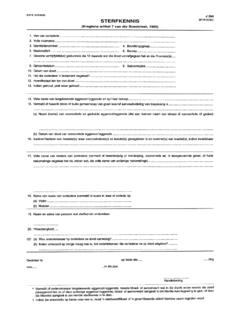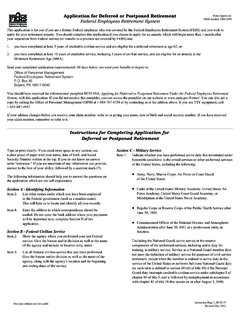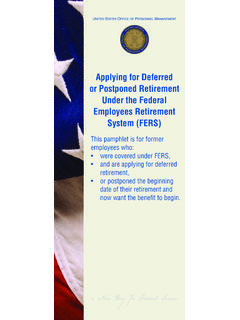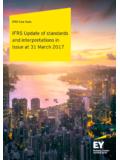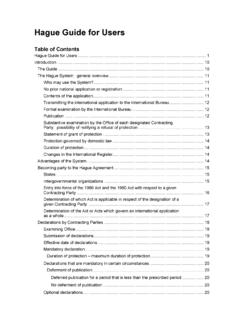Transcription of THE SUPREME COURT OF APPEAL OF SOUTH …
1 THE SUPREME COURT OF APPEAL OF SOUTH africa . JUDGMENT. Case No: 86/10. In the matter between: THE LAW SOCIETY OF THE NORTHERN PROVINCES Appellant v ROCHELLE MAHON Respondent Neutral citation: The Law Society of the Northern Provinces v Mahon (86/2010) [2010] ZASCA 175 (2 December 2010). Coram: Lewis, Cachalia, Leach, Tshiqi JJA and Ebrahim AJA. Heard: 23 November 2010. Delivered: 2 December 2010. Summary: Section 13(2) of the Attorneys Act 53 of 1979 permits a COURT to condone irregular service by a candidate attorney only if he or she has entered into a valid agreement of articles constitutional law interpretation the concepts of fairness' and justice' are not freestanding requirements against which the constitutionality of a statute, its interpretation or its application to the particular facts of a case, may be tested whether a high COURT is bound by this COURT 's pre-constitutional interpretation of a statute.
2 2. _____. ORDER. _____. On APPEAL from: North Gauteng High COURT , Pretoria (Bertelsmann and Rabie JJ. sitting as COURT of first instance). The following order is made: 1. The APPEAL is upheld. 2. The order of the COURT a quo admitting and enrolling the respondent as an attorney of the high COURT is set aside and the following order is substituted in its place: The applicant's application for her admission and enrolment as an attorney of the high COURT is postponed sine die. Her application for condonation in terms of s 13(2) of the Attorneys Act 53 of 1979 for the period served from 3 January 2006 to 28 May 2006 before the conclusion of her articles of clerkship on 28 May 2006 is dismissed.
3 Upon successful completion of her articles of clerkship for a further period of at least three (3) months, either with her former principal or any other attorney duly qualified to act as her principal, alternatively, upon successful completion of a period of at least three (3) months of community service as envisaged by s 2(1A)(b). of the Attorneys Act, the applicant may apply to COURT on the same papers, duly supplemented, for an order in terms of s 11(2) or, depending on the circumstances, any other applicable provision in terms of the Attorneys Act for her admission as an attorney of the high COURT .
4 3. The further period of three (3) months of articles of clerkship is to be served or community service to be performed within a period of twenty four (24) months from the date of this order. The order granted by the COURT a quo condoning the applicant's period of absence of leave for 17 days in excess of the 30 days allowed during any year of her articles of clerkship is not affected by this order. The applicant is ordered to surrender her certificate of enrolment as an attorney of the high COURT to the respondent forthwith.'. _____. JUDGMENT.
5 _____. CACHALIA JA (Lewis, Leach, Tshiqi JJA and Ebrahim AJA concurring): [1] This APPEAL , against a judgment of the North Gauteng High COURT (Bertelsmann J, Rabie J concurring),1 with its leave, concerns the proper interpretation of s 13(2) of the Attorneys Act 53 of 1979. The facts of the case are these. [2] In September 2005 the respondent, Ms Rochelle Mahon, accepted an offer of employment from Attorneys D M Kisch Inc. Her contract was signed on 27 December. It described her position as that of a Candidate Trademark Attorney', and took effect as from 3 January 2006.
6 I shall refer to this agreement as the first agreement'. In addition to the usual provisions relating to salary, working hours, leave, membership of a provident fund and medical aid, her agreement also provided, uncommonly, for a three-month probationary period and an undertaking by the employer to sign her articles of clerkship agreement 1. The judgment is reported as Ex Parte Mahon 2010 (2) SA 511 (GNP). 4. (the clerkship agreement) only if she successfully completed her probation However, when the period ended her principal, Mr A K Van der Merwe, deferred the conclusion of the agreement until she had obtained an outstanding credit (Criminal Law) for her LLB degree so that they could enter into an agreement for a two-year period, which is provided for in s 2(1) of the Act.
7 3 She passed her Criminal Law examination in April 2006. The clerkship agreement was then signed on 28 May 2006, duly lodged with the Law Society of the Northern Provinces on 27 July 2006, and registered in good time as s 5 of the Act requires. [3] On 4 February 2008, Ms Mahon accepted another employment offer as a legal adviser for a bank, where she began working on 5 March 2008. Her employment with D M Kisch came to an end on 28 February 2008, approximately two years and two months after she had started working there. The duration of her service under her clerkship agreement was, however, for three months less than the two year period that s 2(1)(a) of the Act requires for admission as an attorney.
8 So, to overcome this problem, and acting on the premise that the period between 3 January 2006 to 28 May 2006 was irregular service' as a candidate attorney' as contemplated by s 13(2), she applied to the high COURT to condone this period of service as substantially equivalent to regular service' the effect of which would, if granted, exempt her from having to serve the full period of two years in terms of her clerkship agreement in order to qualify for admission as an attorney. [4] The Law Society of the Northern Provinces, the appellant in these proceedings, opposed her application.
9 It did so on the ground that the time spent before Ms Mahon entered into her clerkship agreement was not served regularly 2. The COURT below stated that the probationary period certainly did not reflect the applicant's wishes' (para 23(k)) and that she was given little choice .. and could only accept her fate' (para 13). But no such averments were made in the papers. 3. The COURT below described Mr Van Der Merwe's decision to delay signing the clerkship agreement until Ms Mahon had passed her Criminal Law exam as a refusal to do so (para 11).
10 This is inaccurate. 5. as a candidate attorney' within the meaning of s 13(2), and therefore, was not capable of being condoned. The high COURT , however, granted Ms Mahon's application. The Law Society appeals against that order. [5] On behalf of Ms Mahon it was contended that the first agreement was, in substance, one entered into in accordance with the Act and, therefore, that condonation was not required. Put another way, the argument was that there was substantial compliance' with the requirements of the Act. In the alternative, and if we were to hold that the first agreement was not one that the Act contemplates then, it was contended, her period of employment under it was nevertheless irregular service' that was capable of being condoned.









